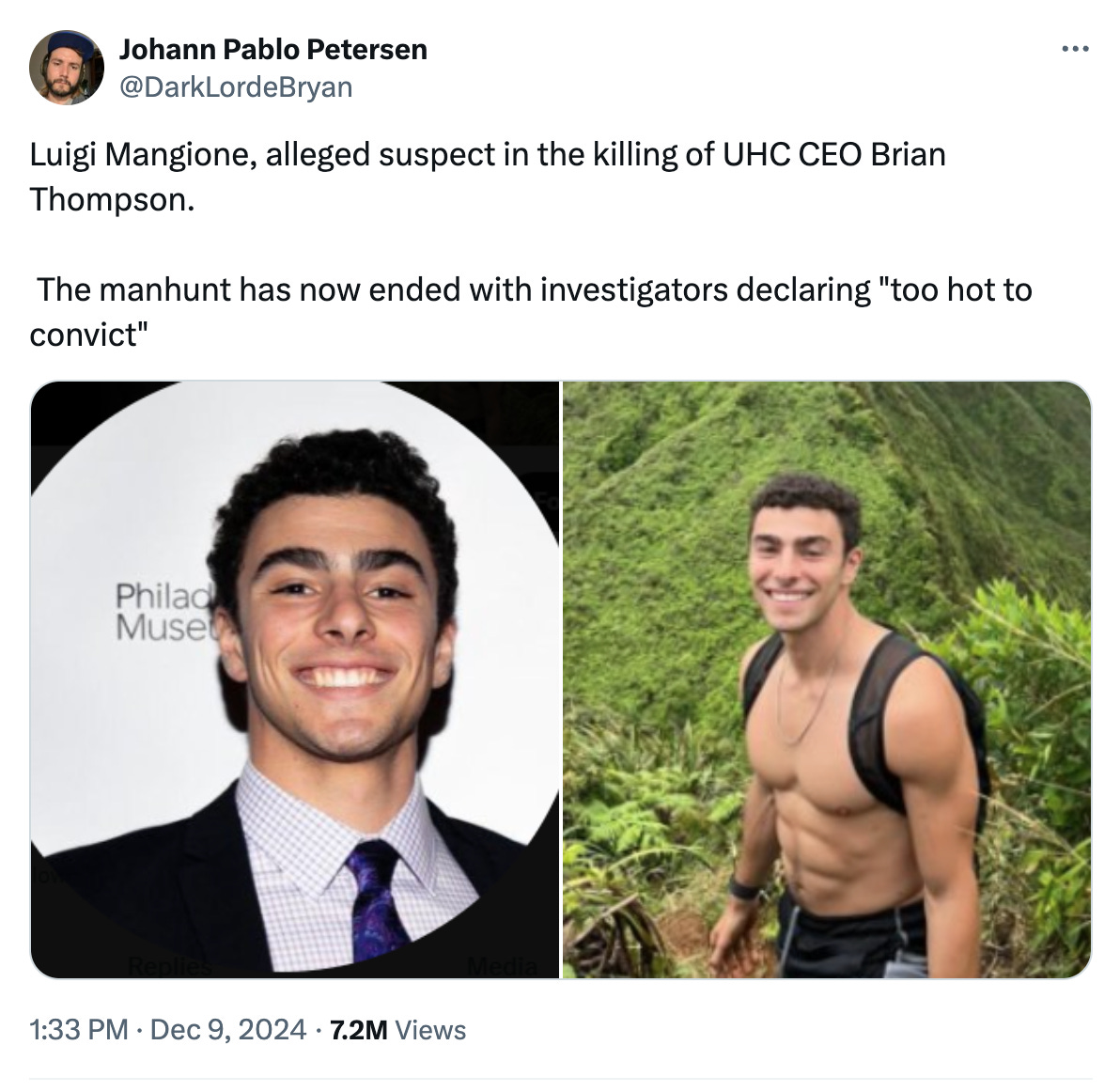Luigi Mangione, Our Sexual Culture Avatar
What defines the Luigi Mangione story is no different than what defines our collective relationship with sexuality.
In the days since Luigi Mangione’s arrest, everyone has been scrambling to ascertain which end of the political spectrum he represents. His actions may knight him as some sort of anti-capitalist hero, the figurehead the left has been looking for, while his retweets of Peter Thiel and post-rationalist reading list have others labelling him as part of the right. It’s this incongruity that makes the entire narrative so compelling. And if it weren’t for that whole, you know, assassination, it would also be what made Mangione relatively average.
As Leah Carroll wrote for GQ this week, there are a lot of young men like Luigi Mangione. Rebecca Jennings at Vox wrote that the rest of America is just has blackpilled as Mangione. The Atlantic, meanwhile, has referred to his politics as both “deplorable” and “extremist” but also “commonplace” and “mainstream.”
None of this is to say that Mangione is normal. But it does suggest that the shared sentiment here is that Mangione’s ideology is not that of an outlier. That would mean, then, that Mangione’s relationship with our sexual culture and the way he has impacted it are not that of an outlier, either. While I would not go so far as to say the assassination was sexually motivated in any significant way, what has emerged since Mangione was identified has revealed that sex is part of this. At very least, our own views of sexuality have shaped our interpretations of it all.
There is first the personal: sources close to Mangione (including, for some reason, his former landlord?) have said that Mangione’s back injury hindered his ability to date and be physically intimate. He was either in such pain that he could not enjoy these activities, or his injury may have even caused him sexual dysfunction.
Then there is the political: Mangione had occasionally tweeted opinions on pornography, saying that it should be at least as regulated as alcohol, cigarettes and travel. After visiting Japan, he lamented the culture of isolation and declining birthrate of the country. Among his suggestions for solutions, he said that Japan ought to do away with its conveyor belt sushi spots and push people toward restaurants with real waiters, to stigmatize the bars and cafes where men pay women to dress up as anime characters rather than trying to date, and to ban men’s sex toys from mainstream shops.
These two factors have, of course, been polarizing. And more than any sort of indicator of political allegiance, I believe they position Mangione as a quintessential figure of our current sexual culture.
Most have viewed Mangione’s potentially limited sex life with sympathy, while a small few have taken this to mean that Mangione was an incel. While his pain may have made him “involuntarily celibate” by basic definition, it does not mean he fits the label of incel as it has more widely become known. He did not murder the CEO of UnitedHealthcare because of the cultural forces that limited him from having sex. Even so, loneliness and an inability to be intimate, emotionally or physically, may have contributed to his state. And while the specifics of his plight may not be all that universal, a struggle with sexuality is yet another feature of Mangione’s that seems all around average.
Keep reading with a 7-day free trial
Subscribe to Many Such Cases to keep reading this post and get 7 days of free access to the full post archives.





